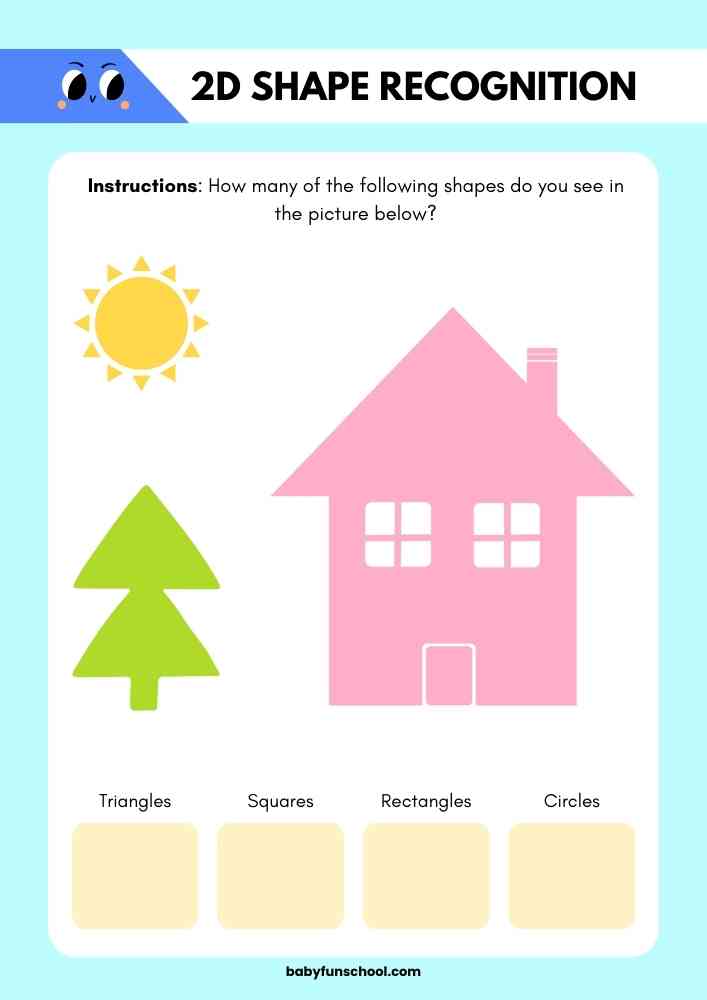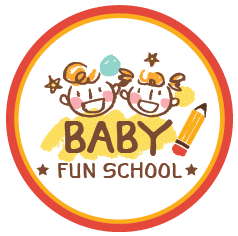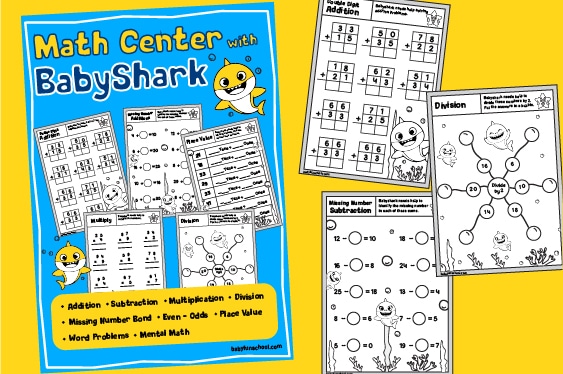Mathematics can often be a challenging subject for young learners. However, incorporating engaging elements into the learning process can make a significant difference. In this blog post, we will explore how the Math Center Practice program, featuring the beloved animated character Babyshark, offers an exciting and effective way for children to improve their math skills. By utilizing cartoons and a convenient print-and-go approach, this program aims to boost children’s confidence and proficiency in various mathematical concepts.
Engaging Learning with Babyshark
Babyshark has captured the hearts of children worldwide with its catchy tunes and lovable characters. Leveraging the popularity of Babyshark, the Math Center Practice program infuses this animated character into the learning experience, making math more enjoyable and engaging for young learners. By incorporating cartoons and vibrant visuals, children are drawn into the world of Babyshark, creating a positive and exciting atmosphere for math learning.
The Math Center Practice program offers a comprehensive range of math topics designed to strengthen fundamental skills. With a focus on second and third-grade students, the program covers essential concepts such as addition, subtraction, multiplication, division, missing number bonds, even-odds, place value, word problems, and mental math. By providing a diverse set of topics, the program ensures that children receive a well-rounded math education.
Boosting Confidence and Skills
By using the Math Center Practice program, children have the opportunity to improve their math skills while building confidence in their abilities. The program employs a print-and-go approach, allowing for convenient usage and saving valuable time for both educators and parents. The 45 diverse math worksheets included in the resource are specifically designed for independent work, promoting autonomy and self-reliance in students.
Developing Core Mathematical Skills
Addition and Subtraction: Through the program, children can enhance their skills in two and three-digit addition and subtraction, building a solid foundation for more complex calculations.
Multiplication and Division: The Math Center Practice program introduces multiplication and division, equipping students with essential operations that are integral to higher-level math.
Missing Number Bond and Place Value: By exploring missing number bonds and place value concepts, children develop critical thinking and problem-solving abilities while deepening their understanding of number relationships.
Word Problems and Mental Math: The inclusion of word problems and mental math challenges encourages students to apply their mathematical knowledge in real-world scenarios. These activities foster critical thinking and analytical skills.



